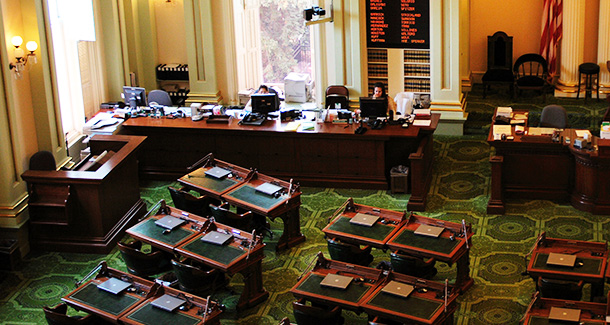
(Photo Credit: Antti T. Nissinen/Flickr)
In 1999, an important measure for the safety and security of state employees as well as accountability to the public was signed into law called the California Whistleblower Protection Act. The law allowed for the seemingly obvious: California state employees should be able to report unlawful or unethical acts without fear of retaliation, and now they are.
But there is a provision that made a very notable exception to the rule, just one line that exempted Legislators and their employees from the law.
Yes, in California every state employee is shielded from retaliation and can report actions such as corruption, malfeasance, bribery, theft of government property, fraudulent claims, fraud, coercion, conversion, malicious prosecution, and misuse of government property, just to name a few. All except those in the Legislature, that is.
The law defines “employee” with a long list, including appointees of the Governor, workers in the courts and state agencies, and even those employed by California State Universities and the University of California; however, the law excludes a “member or employee of the Legislature,” the only specific exclusion.
The small yet powerful line makes for one very obvious loophole in the law: lawmakers may partake in unlawful or unethical acts while their staff is unable to report such behavior without fear of retribution.
In light of the 2014 events where three state Senators were investigated and subsequently found guilty of various crimes including accepting bribes and gun running, it makes one wonder if such events could have been addressed sooner if their staff could have safely reported the behavior. I suppose we’ll never know, but we can potentially prevent the perpetuation of future unlawful behavior with legislation that includes Legislative employees in the California Whistleblower Protection Act.
This legislation has been authored by Assemblymember Melissa Melendez (R-Lake Elsinore), and its history tells an interesting story.
“Bad behavior in the Senate is the whole reason for this legislation,” said Melendez. “The people deserve better, and I intend to get it for them.”
The bill is called the Legislative Employee Whistleblower Protection Act and is now on its second author, and its fifth iteration. While always enjoying overwhelming bipartisan support, the act has never failed to find its eventual death in a legislative committee.
First introduced in 2012 by then-Assemblymember Anthony Portantino, Assembly Bill 1378 found its demise in the Assembly Appropriations Committee, and then again as AB 2256 in the Assembly Judiciary Committee. The torch was then passed in 2014 to Assemblymember Melendez in the form of AB 2065 which was withheld without a vote in the Senate Appropriations Committee, and then again in 2015 as AB 289.
Undeterred, Melendez’s latest version of the bill, AB 1788, is winding its way through the legislative process yet again. It will now be heard on Tuesday, June 28 at 1:30 p.m. in the Senate Judiciary Committee where the bill has previously found its demise from this committee’s Assembly counterpart.
“How can any elected officials look the people they represent in the eye and tell them this bill is not good for the state of California?” said Melendez. “If Democratic leadership wants to kill this bill each year they can do that, but I will continue to introduce this bill year after year.”
It's an interesting concept that a law that already exists for state employees, that has no formal opposition, that enjoys bipartisan support, and would pose little to no fiscal liability should have such a difficult time obtaining passage.
I mean, why would legislators want their staff to fear retaliation for reporting unethical or unlawful acts?
Luckily for the public and legislative staff, Melendez has been continually willing to use the limited number of bills she possesses (members of the Assembly are only allowed to introduce 40 pieces of legislation each two-year cycle) to attempt to close this loophole in the Whistleblower Protection Act and provide accountability and security for legislative employees.
California Forward, a bipartisan governance improvement organization, is a strong proponent of the California Legislative Employee Whistleblower Protection Act and believes that all employees of the state should be provided this right.
The hope is that this time around it will be successful.

